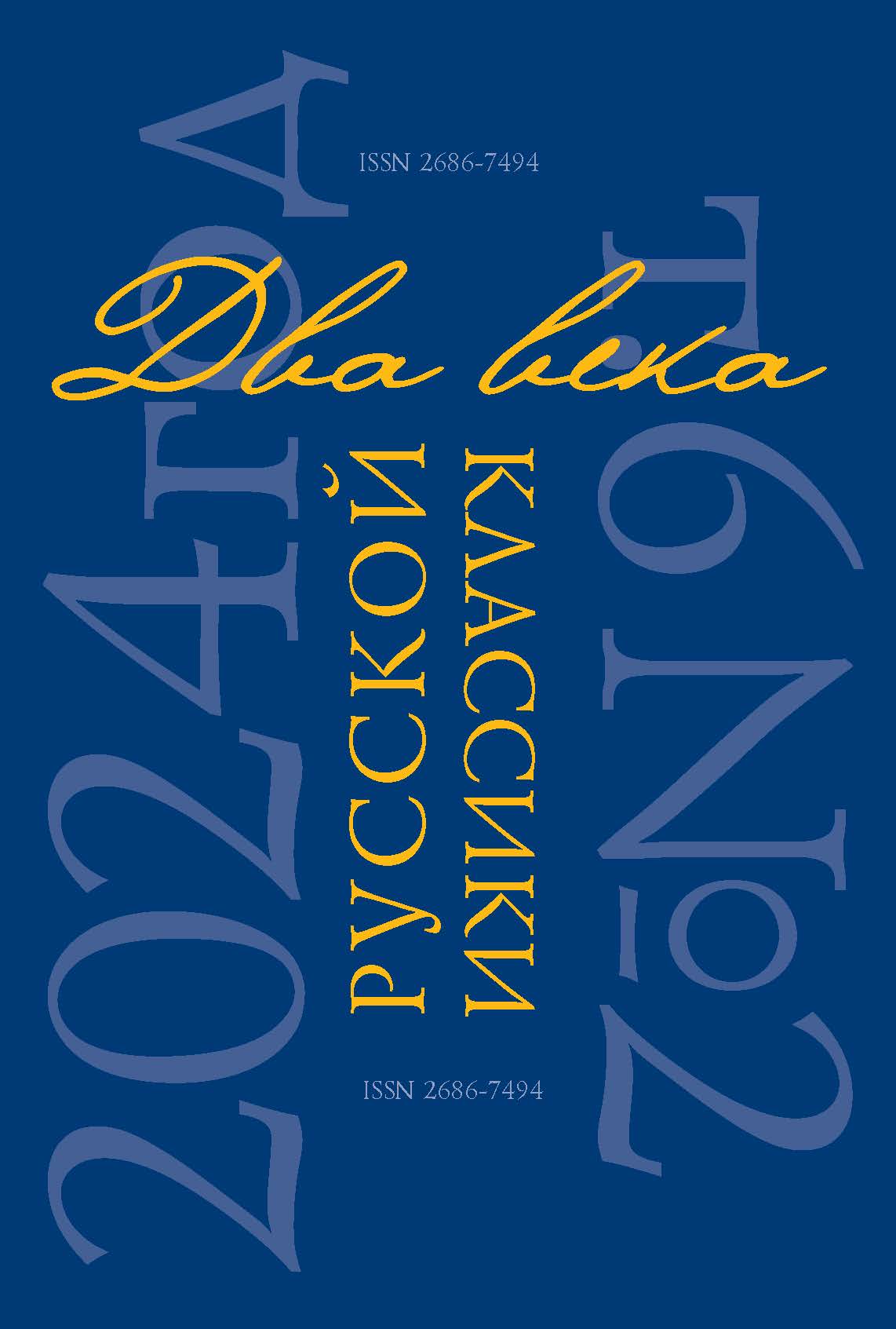Abstract:
The article deals with the Sevastopol stories of Leo Tolstoy in comparison with memoir sources and documents reflecting the events of the Crimean War of 1853‒1856. The works of M. I. Bogdanovich, E. I. Totleben, H. J. Gubbenet, F. K. Zatler, N. I. Pirogov, N. V. Berg, O. I. Konstantinov demonstrate the examples of historical evidence. The article shows that the source of the genre nature of the Sevastopol stories was the military experience of the young officer Tolstoy, who created a panorama of events woven from a qualitatively different figurative and artistic material and having an immeasurably greater impact than statistics and official documents. The analysis covrers artistic techniques of the writer in the paintings of the Sevastopol hospital, the assault on the Malakhov Kurgan and the departure of the Russian army from Sevastopol. Summing up the results, it can be concluded that the artistic scale of the Sevastopol stories created by Tolstoy corresponds to the historical scale of military events. The author not only did not deviate from the historical truth, but revealed the tragic depth and sacred meaning of the Crimean War in Russian history.
References
Besov, A. G. “O prichinakh i itogakh Krymskoi voiny 1853–1856 godov” [“On the Causes and Results of the Crimean War of 1853–1856”]. Vostochnyi arkhiv, no. 14–15, 2006, pp. 5–10. (In Russ.)
Burnasheva, N. I. “Kommentarii. Proizvedeniia 1852–1856 gg.” [“Comments. Works of 1852–1856”]. Tolstoi, L. N. Polnoe sobranie sochinenii: v 100 t. [Complete Works: in 100 vols.], vol. 2: 1852–1856 [1852–1856]. Moscow, Nauka Publ., 2002, pp. 283–517. (In Russ.)
Gulin, A. V. Lev Tolstoi i puti russkoi istorii [Leo Tolstoy and the Ways of Russian History]. Moscow, IWL RAS Publ., 2004. 253 p. (In Russ.)
Dmitriev, A. P., and D. A. Fedorov. “Krymskaia voina i russkii mir v perepiske Very Aksakovoi i Marii Kartashevskoi” [“The Crimean War and the Russian World in the Correspondence of Vera Aksakova and Maria Kartashevskaya”]. Krymskaia voina v istorii Rossii i v zhizni slavianofil’skogo semeistva: Perepiska Very Aksakovoi i Marii Kartashevskoi. 1853–1856 [The Crimean War in the History of Russia and in the Life of the Slavophile
Family: Correspondence of Vera Aksakova and Maria Kartashevskaya]. St. Petersburg, Rostok Publ., 2016, pp. 3–26. (In Russ.)
Shcherbakova, M. I. “Sevastopol’skie rasskazy L. N. Tolstogo: dukhovnye smysly Krymskoi voiny” [“Leo Tolstoy’s Sevastopol Stories: Spiritual Meanings of the Crimean War”]. Studia Litterarum, vol. 7, no. 2, 2022, pp. 176–187. https://doi.org/10.22455/2500-4247-2022-7-2-162-173 (In Russ.)









